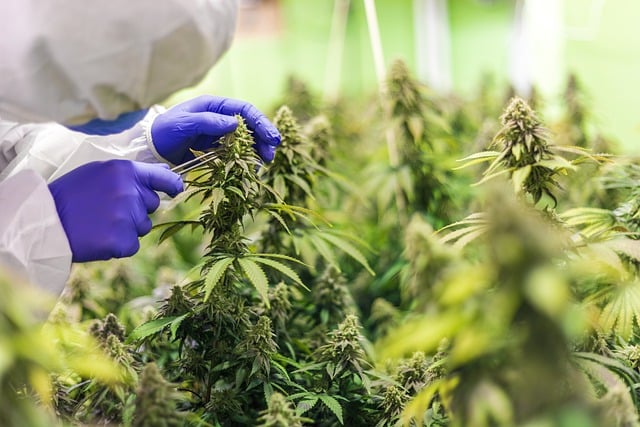
THCa Flower: Everything You Need to Know About Its Therapeutic Uses
THCa Flower: Everything You Need to Know About Its Therapeutic Uses
In recent years, the interest in cannabis and its derivatives has surged, with many seeking natural alternatives for health and wellness. Among the various compounds found in cannabis, THCa (tetrahydrocannabinolic acid) has gained attention for its potential therapeutic benefits. This article explores the properties of THCa flower options, its uses, and the science behind its effects.
Understanding THCa: The Basics
THCa is a non-psychoactive cannabinoid found in raw and live cannabis plants. Unlike THC (tetrahydrocannabinol), which is known for its psychoactive effects, THCa does not produce a “high.” This makes it an attractive option for those seeking the medicinal benefits of cannabis without the mind-altering effects.
How THCa Converts to THC
THCa is the precursor to THC. When cannabis is heated through smoking, vaping, or cooking, a process called decarboxylation occurs, converting THCa into THC. This transformation is why raw cannabis does not produce psychoactive effects until it is heated.
Therapeutic Uses of THCa
Research into the therapeutic uses of THCa is still in its early stages, but preliminary studies and anecdotal evidence suggest several potential benefits:
- Anti-inflammatory Properties: THCa may help reduce inflammation, making it a potential option for conditions like arthritis and inflammatory bowel disease.
- Neuroprotective Effects: Some studies indicate that THCa might protect brain cells, which could be beneficial for neurodegenerative diseases such as Alzheimer’s and Parkinson’s.
- Anti-emetic Benefits: THCa flower has shown promise in reducing nausea and vomiting, particularly in patients undergoing chemotherapy.
- Appetite Stimulation: While THC is known for increasing appetite, THCa may also play a role in stimulating hunger, which can be helpful for individuals with eating disorders or those undergoing treatments that suppress appetite.
Case Studies and Research
Several case studies have highlighted the potential of THCa in medical applications. For instance, a study published in the “Journal of Clinical Pharmacology” examined the effects of THCa on patients with epilepsy. The results suggested a reduction in seizure frequency, offering hope for those who do not respond well to traditional treatments.
Another study conducted by the University of Maryland explored THCa’s anti-inflammatory properties. Researchers found that THCa reduced inflammation markers in animal models, paving the way for further research into its potential for treating chronic inflammatory conditions.
How to Use THCa Flower
THCa flower can be consumed in various ways, each offering different benefits:
- Raw Consumption: Consuming raw cannabis leaves or flowers in smoothies or salads preserves THCa’s non-psychoactive properties.
- Tinctures and Oils: These products allow for precise dosing and can be added to food or taken sublingually for quick absorption.
- Topicals: THCa-infused creams and balms can be applied directly to the skin for localized relief from pain and inflammation.
Considerations for Use
When using THCa flower, it’s important to consider the source and quality of the product. Opt for organically grown cannabis to avoid exposure to pesticides and other harmful chemicals. Additionally, consult with a healthcare professional to determine the appropriate dosage and method of consumption for your specific needs.
Legal Status of THCa
The legal status of THCa varies by region. In some areas, THCa is considered legal due to its non-psychoactive nature, while in others, it falls under the same regulations as THC. It’s crucial to research local laws and regulations before purchasing or using THCa products.
Conclusion
THCa flower presents a promising avenue for those seeking therapeutic benefits from cannabis without the psychoactive effects. With potential applications in reducing inflammation, protecting brain health, and alleviating nausea, THCa offers a versatile option for various health concerns. As research continues to unfold, the understanding of THCa’s full potential will likely expand, providing more insights into its role in health and wellness.
Recent Posts
- Navigating the World of CBD Oil for Canines: What You Required to Know
- The Growing Trend of CBD for Pets: What Owners Ought To Take into consideration
- Avoiding Rip-offs: What to Watch Out for When Choosing a Gold Individual Retirement Account Firm
- Exactly How to Whiten Teeth After Braces: Tips for a Sensational Smile
- Exactly How to Whiten Pearly Whites with Baking Soda: Misconceptions and Truths